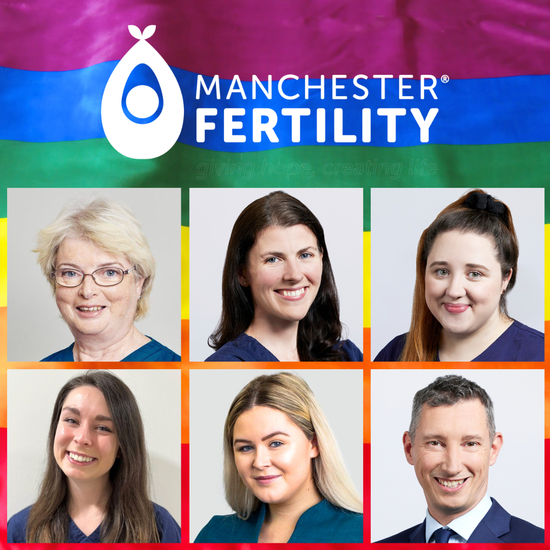A new study has examined treatment outcomes and considerations for men seeking fertility treatment who are in a same-sex relationship or wish to become a father on their own.
The study, which reported that men seeking surrogacy has increased tri-fold over the past 10 years, looked at men who visited a clinic in Toronto.
In most cases, men who were in a relationship chose to use their own sperm to fertilise their donated eggs, and also chose an anonymous egg donor, but who was open to be contacted by any conceived-children once the child reaches 18.
This study, which demonstrated the desire by same-sex male couples and single men to have a genetic link to their child and for identifiable donors, is one of the first to really look at the choices and outcomes facing men who want families this way.
At Manchester Fertility we can help you have a family if you’re a single man or a man in a same-sex relationship. Although we cannot find a surrogate for you, we will be able to carry out the fertility treatment needed at our clinic to help you have a baby once you have a surrogate, and support you all every step of the way.
So what are your options? You will first need to find a surrogate. In the UK it is illegal to advertise for a surrogate, but Childlessness Overcome Through Surrogacy (COTS) has a Triangle scheme which introduces surrogates. However there is no guarantee as any decision to proceed is purely up to the surrogate herself. For more details on the scheme, visit the COTS website.
You can also find your own surrogate if you can – perhaps there is a family member or friend who would be willing to help you.
Once you have identified a surrogate, you will all need to attend our clinic for counselling. It’s crucial that everyone understands the implications of surrogacy before proceeding with this form of treatment, and our counsellors are highly-experienced in this field.
If you opt for host/gestational surrogacy, you will need to use donated eggs. This is where your surrogate does not use her own eggs. Instead, donated eggs are fertilised with your sperm (or your partner’s if you’re in a relationship), and any resulting embryos transferred into your surrogate to grow and develop as in natural pregnancy.
Thanks to our strong donor programme, at Manchester Fertility we have donor eggs ready to help you have a family, which have come from women already screened, who have donated to us altruistically or through our egg-sharing programme. These women are identifiable to any children born using their eggs once the child reaches 18.
Or, you may opt for partial or straight surrogacy. This is where your surrogate uses her own eggs. She will be inseminated with your sperm (or your partner’s) in the hope that she will get pregnant.
It’s important to remember that surrogacy is a very complicated treatment with many legal issues to consider, especially relating to legal parentage, so it’s vital that you take the right advice if you’re considering having a family through surrogacy.
At Manchester Fertility we have many years experience in guiding our patients through this process, and are trusted by many couples and single people to help them have a family in this way. Members of our expert team have special interest in surrogacy, so please don’t hesitate to get in touch with us if you’re considering having a family using a surrogate. We’d be more than happy to talk to you on 0161 300 2737.
You can also visit https://www.surrogacy.org.uk for more general information about surrogacy.
Last updated: 21st January 2020






